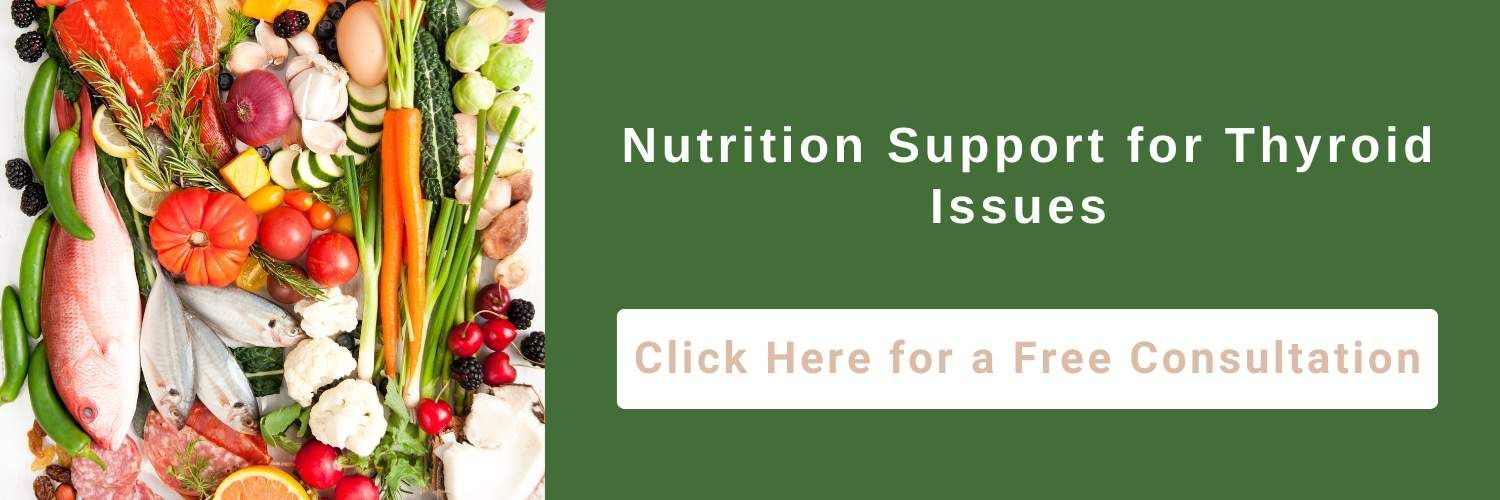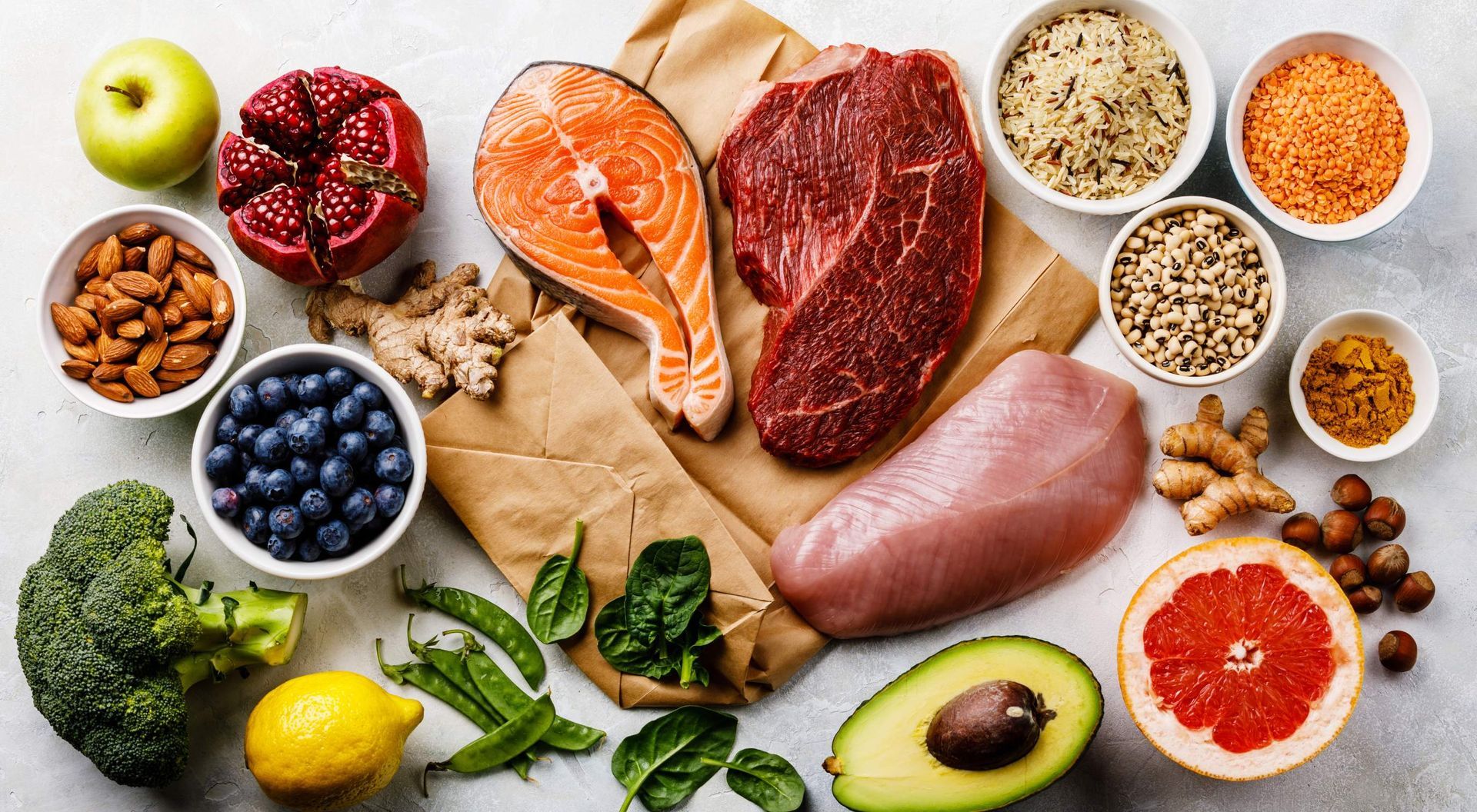Foods To Avoid With Hyperthyroidism and What You Should Eat Instead
Nervousness, anxiety, mood swings, difficulty sleeping …
Managing the symptoms of hyperthyroidism can feel like a delicate balancing act, but one of the best things you can do for your body is make mindful food choices.
If you’re dealing with this condition, you may be wondering what foods to avoid with hyperthyroidism.
We’ll look at which foods could make hyperthyroidism more challenging and explore how simple changes to your diet might help you feel better. Keep reading to find out how to nourish your body in a way that could support your thyroid and overall well-being.
Table of Contents
How Can Diet Affect Hyperthyroidism?
Hyperthyroidism, a condition where the thyroid gland overproduces hormones, can be controlled by medication. But diet plays a big part in the condition as well — both for good and bad.
Some foods can negatively impact the thyroid by causing it to produce even more hormones or interfering with treatment. There is evidence that other nutrients and minerals can help hyperthyroidism patients manage their underlying conditions.
Read on as we discuss types of food to avoid with hyperthyroidism and what you should be adding to your diet.
What Should Not Be Eaten With Hyperthyroidism?
Foods that you should avoid if you have hyperthyroidism include:
- Iodine-rich foods
- Gluten
- Caffeine
- Soy
Let’s examine why each category can be harmful to this condition and specific foods to stay away from.
Iodine-Rich Foods
Excessive iodine intake can cause hyperthyroidism and worsen the condition for those who already have it. Iodine-induced hyperthyroidism can even be life-threatening for some people. Iodine-rich foods to avoid with hyperthyroidism include:
- Iodized salt
- Iodine supplements
- Baked goods containing iodate dough conditioners
- Seaweed or kelp
- Fish or shellfish
- Beef liver
- Dairy products
- Egg yolks
- Blackstrap molasses
- Foods with carrageenan or agar as an additive
- Foods containing red dye
Gluten
Research shows that Graves’ disease (an autoimmune condition that causes the thyroid to overproduce hormones) and celiac disease (a condition that causes damage to the small intestine when gluten is ingested) are linked. Therefore, it makes sense that those with hyperthyroid problems should avoid gluten in their diets.
Foods containing gluten include those with the following ingredients:
- Wheat
- Barley
- Rye
- Malt
- Brewer’s yeast
- Triticale
Caffeine
Caffeine may not directly affect the thyroid gland, but it can worsen some of the symptoms of hyperthyroidism like rapid heart rate, insomnia, increased anxiety, nervousness, and irritability. To tamp down these side effects, try to avoid food and beverages like:
- Chocolate
- Soda
- Coffee and tea
- Energy drinks
Soy
While soy isn’t known to directly affect the thyroid, ingesting these products can interfere with one of the most common treatments for hyperthyroidism and hinder the absorption of radioactive iodine.
Sources of soy include:
- Tofu
- Edamame
- Soy sauce
- Soy milk
- Soy-based creamers
- Soybean oil
What Is the Best Diet for Hypothyroidism?
Now that we’ve given you a list of foods to avoid with hyperthyroidism, let’s discuss what you should eat to help improve your condition and overall health. The best diet for hyperthyroidism includes:
- Low-iodine foods
- Foods containing selenium
- High-iron foods
- Cruciferous vegetables
- Healthy fats
- Foods high in copper
- Foods containing calcium and vitamin D
- Antioxidants
- Certain spices
Here are examples of these foods and why they may benefit people with hyperthyroidism.
Low-Iodine Foods
Since iodine is essential for the production of thyroid hormones, consuming foods that are low in this nutrient may aid in the reduction of excess levels.
Try adding some of these low-iodine products to your diet:
- Non-iodized salt
- Egg whites
- Potatoes
- Unsalted nuts/nut butters
- Honey and maple syrup
- Homemade bread made with non-iodized salt
- Fruits and vegetables (canned, fresh, or frozen)
- Grains, cereals, and pasta products made without iodine
- Moderate servings of chicken, turkey, lamb, veal, and beef
Foods Containing Selenium
Selenium has been shown to help regulate thyroid levels for those with hyperthyroidism and slow the progression of Graves’ disease. Selenium supplements are available, but you can also add these foods rich in this nutrient to your meal plan:
- Brazil nuts and sunflower seeds
- Cottage cheese
- Organ meats
- Ham
- Poultry
- Oatmeal
- Cereals and grain products (rice, couscous)
- Baked beans
- Spinach
- Mushrooms
- Chia seeds
High-Iron Foods
Iron deficiency has been found to have a significant impact on thyroid function, so eating iron-rich foods is a great way to improve thyroid health. These include:
- Beans and lentils
- Whole wheat bread
- Lean meats
- Nuts
- Spinach
- String beans
- Sweet potatoes
- Strawberries
- Prunes
- Raisins
Some iron-rich foods can also be high in iodine, which we’ve already learned can be bad for hyperthyroidism patients. Be sure to discuss your food choices with your healthcare professional to stay on the right track.
Cruciferous Vegetables
Because cruciferous vegetables interfere with the way the thyroid produces iodine, many thyroid patients have been told to stay away from them in the past. However, this interaction may actually be helpful for hyperthyroidism patients. And some doctors suggest that you would have to consume excessive and unrealistic amounts of this food type to cause any sort of problems.
The following cruciferous vegetables can be part of a healthy diet when consumed in moderation:
- Broccoli and broccoli rabe
- Cauliflower
- Kale and arugula
- Brussels sprouts and cabbage
- Bok choy
- Bamboo shoots
- Greens (collard, mustard, turnip)
- Radishes
- Rutabagas
If you’re still concerned about consuming cruciferous vegetables with an overactive thyroid, you should cook them rather than eat them raw, as this can help negate any interaction with your hormone levels.
Healthy Fats
Healthy fats are known to reduce inflammation, which may help protect thyroid health and balance hormones (and is optimal for overall health as well). Because dairy products are usually high in iodine, hyperthyroidism patients should look for healthy non-dairy fats such as:
- Unsalted seeds and nuts
- Avocado and avocado oil
- Olive oil
- Coconut oil
- Peanut oil
Foods High in Copper
Copper is known to regulate thyroid function and control calcium levels in the blood. This is important because about 20% of hyperthyroidism patients also develop hypercalcemia, which involves abnormally high blood calcium levels and can lead to osteoporosis.
Copper-rich foods include:
- Cashews
- Sunflower and sesame seeds
- Dark unsweetened chocolate
- Chickpeas
- Potatoes
- Spinach
Foods Containing Calcium and Vitamin D
The link between hyperthyroidism and decreased bone density can lead to osteoporosis, so it’s important to include nutrients known for bone health in your diet — especially since people with hyperthyroidism are already known to have a vitamin D deficiency.
Some foods high in calcium and/or vitamin D include:
- Milk and some fortified dairy products
- Almond milk
- Broccoli, kale, and bok choy
- Spinach and collard greens
- Okra
- White beans
- Mushrooms
- Fortified orange juice
- Fortified cereals
- Fatty fish like salmon and tuna
Because some of the foods on this list can also be found on the list of foods high in iodine to avoid with hyperthyroidism, it’s important to talk to your doctor about how much of them you can have.
Antioxidants
Antioxidants are helpful for individuals with hyperthyroidism as they strengthen the immune system and protect against cell damage caused by free radicals. You can supplement your diet with antioxidants by eating plenty of:
- Avocados
- Blueberries
- Cantaloupe
- Honeydew
- Leafy greens
- Oranges
- Papaya
- Strawberries
- Watermelon
Certain Spices
Research shows that some spices may help reduce oxidative stress and inflammation in the thyroid gland. Feel free to liberally add these flavorings to your recipes:
- Turmeric
- Black cumin seeds
- Green chiles
- Black pepper
Experience Natural Treatment for Hyperthyroidism With HealthierU
Dr. Donna Sergi at HealthierU has dedicated her life to the pursuit of health and wellness and is happy to provide naturopathic hyperthyroidism treatment in Brooklyn. She is committed to helping her patients get well — and stay healthy — naturally with nutrition and lifestyle guidance.
Since some foods with nutrients that are good for hyperthyroidism may also contain others that could be harmful, it’s best to let a professional guide you as you pursue the optimal hyperthyroidism diet for your specific condition. Dr. Sergi will be happy to take your complete history and make recommendations about the right balance of nutrients to help get you back on the road to health.
The journey toward a healthier you starts here. Contact us today for a free consultation.





